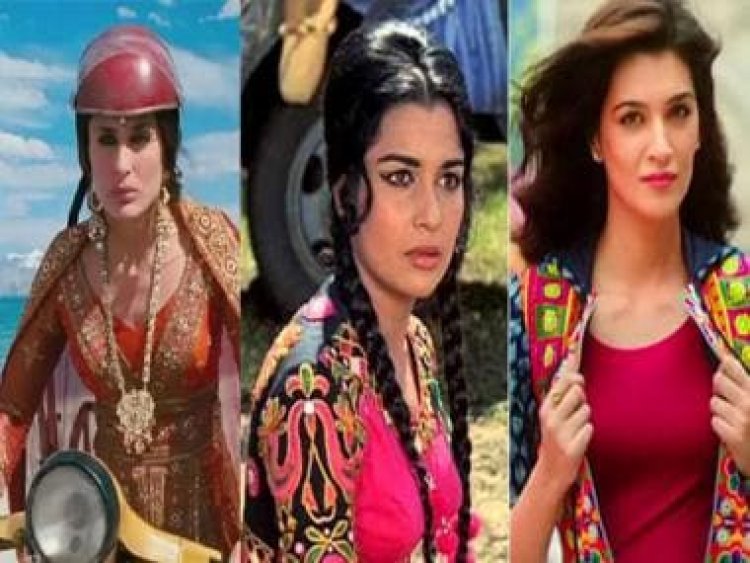Retake: Runaway brides and the utility of all escapism
Retake: Runaway brides and the utility of all escapism

In a scene from Vijay Anand’s directorial debut Nau Do Gyarah (1957), two men stand next to a room window at a marriage ceremony. “Yun kaho to ladki ki zindagi barbaad ho rahi hai. Main hota toh bhaag jata,” one says to the other, while also being overheard by the bride inside. Minutes later, she, elopes all on her own, in a lorry headed for Mumbai. To make things even more interesting she disguises herself as a boy. Runaway brides are now common, often utilised at cathartic montages inside films but back in the day, the sight of a woman leaving the scene of her marriage was rare. Anand’s Nau Do Gyarah doesn’t exactly make a meal about the politics of this wanton, cocksure act of rebellion but it was one of the first films to tease the idea of a woman choosing to run, towards the uncertain arms of an unsparing world rather than the assured but ultimately demeaning embrace of match made for her in heaven (or earth).
In 3 Idiots, the climax is preceded by the chaotic escape of a bride (Kareena Kapoor) from the clutches of a man she never really wanted to marry in the first place. In Aamir Khan’s Dil Hai Ke Manta Nahi, a father himself requests his daughter to run away from her marriage after he learns of her love affair with another man. In Namaste London, Katrina Kaif elopes from the clutches of a native marriage she doesn’t approve of only to be dazzled by the man she left at the altar. Marriages have been avoided, annulled or escaped from in all sorts of ways in our cinema, but the bride’s tenacious escape is probably the most exhilarating version to have been birthed in our cinema. It probably follows the idea that only caged birds would be forced to hectically flap their wings to escape what they once believed was their nest.
Marital relationships in this country are built on the paradigm of insecurity more than the invocation of emotion. From lineage, to economical heritage everything is a possession until it can be lost to unfulfilling isolation and loneliness. We are never really taught to live by ourselves, and it is why Hindi heroes and heroines have constantly sought companionship, not in friends or intellectual acquaintances, but in the opposite gender. Marriage is what legitimises this relationship with the seal of social approval. Not all relationships are pining for legitimacy, but at the end of the day, designs are imposed from the top down. Which explains why the idea of choice feels like a last-ditch rethink in our films and not a provision. In a more equitable, liberal society, this choice by virtue of being available would also be insignificant. The bride wouldn’t have to run away but would simply choose to not be the bride.
Brides have run away for a variety of reasons after marriage. For example in Caravan (1971), Sunita (Asha Parekh) runs away from a potentially dubious marriage after having tied the knot. But while this particular escape is mandated by the unearthing of a dark secret, others are often almost inspired by love or in the latest evolutionary chapter of this trope, by the desire to explore life. In Bareilly Ki Burfi, for example, Bitti (Kriti Sanon) is a habitual eloper who has resigned herself to a life on the run, persistently opposing the idea of being tied down by marital subjugation. There is a reckless energy to this latest version of the runaway bride, where the act of running away is merely used as a trait rather than the story’s pivot. It is evidence of the distance this particular trope has travelled since the day it was considered a social abomination.
Runaway brides might have been considered immoral outcasts at one point of time, but they have over the course our cinematic history graduated from hapless victims, to characters imposing themselves at the last minute. Of course it’s a narrative trick to wait for that late, glorious moment because without only when push comes to shove does the alternative really reveal itself. Most incredibly, however, brides running away from marriage have often or in most cases, just run to other marriages. In a way Bollywood desecrates and protects the institution it has always championed as the moral chalice in which all Indianness is birthed. Sadly, and rather grimly, it also implies that there is no escape, even for the ones who run away.
The momentary act of running away from the site of your marriage, might tease feminism of sorts, but it really just chooses a different route towards the inevitable. No bride has probably escaped from Indian cinema to live a life, away from the presumptive demands of social and familial setups. Yes, some of them run away from potentially abusive or loveless relationships but they have, for better or worse, landed back at the mandap they so ceremoniously escaped. There is then a sense of liberation in choosing what you wanted, but so far that want has only manifested as another man. Let’s hope someone changes that soon.
The author writes on art and culture, cinema, books, and everything in between. Views expressed are personal.
Read all the Latest News, Trending News, Cricket News, Bollywood News,
India News and Entertainment News here. Follow us on Facebook, Twitter and Instagram
What's Your Reaction?


























































